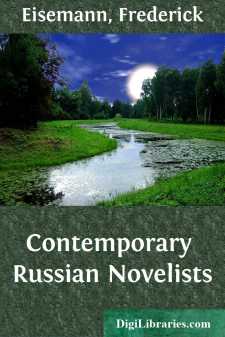Categories
- Antiques & Collectibles 13
- Architecture 36
- Art 48
- Bibles 22
- Biography & Autobiography 815
- Body, Mind & Spirit 144
- Business & Economics 28
- Children's Books 18
- Children's Fiction 14
- Computers 4
- Cooking 94
- Crafts & Hobbies 4
- Drama 346
- Education 58
- Family & Relationships 59
- Fiction 11829
- Games 19
- Gardening 17
- Health & Fitness 34
- History 1378
- House & Home 1
- Humor 147
- Juvenile Fiction 1873
- Juvenile Nonfiction 202
- Language Arts & Disciplines 89
- Law 16
- Literary Collections 686
- Literary Criticism 179
- Mathematics 13
- Medical 41
- Music 40
- Nature 179
- Non-Classifiable 1768
- Performing Arts 7
- Periodicals 1453
- Philosophy 65
- Photography 2
- Poetry 896
- Political Science 203
- Psychology 44
- Reference 154
- Religion 515
- Science 126
- Self-Help 85
- Social Science 82
- Sports & Recreation 34
- Study Aids 3
- Technology & Engineering 59
- Transportation 23
- Travel 463
- True Crime 29
Our website is made possible by displaying online advertisements to our visitors.
Please consider supporting us by disabling your ad blocker.
Contemporary Russian Novelists
Description:
Excerpt
I
A BRIEF SURVEY OF RUSSIAN LITERATURE
In order to get a clear idea of modern Russian literature, a knowledge of its past is indispensable. This knowledge will help us in understanding that which distinguishes it from other European literatures, not only from the viewpoint of the art which it expresses, but also as the historical and sociological mirror of the nation's life in the course of centuries.
The dominant trait of this literature is found in its very origins. Unlike the literatures of other European countries, which followed, in a more or less regular way, the development of life and civilization during historic times, Russian literature passed through none of these stages. Instead of being a product of the past, it is a protestation against it; instead of retracing the old successive stages, it appears, intermittently, like a light suddenly struck in the darkness. Its whole history is a long continual struggle against this darkness, which has gradually melted away beneath these rays of light, but has never entirely ceased to veil the general trend of Russian thought.
As a result of the unfortunate circumstances which characterize her history, Russia was for a long time deprived of any relations with civilized Europe. The necessity of concentrating all her strength on fighting the Mongolians laid the corner-stone of a sort of semi-Asiatic political autocracy. Besides, the influence of the Byzantine clergy made the nation hostile to the ideas and science of the Occident, which were represented as heresies incompatible with the orthodox faith. However, when she finally threw off the Mongolian yoke, and when she found herself face to face with Europe, Russia was led to enter into diplomatic relations with the various Western powers. She then realized that European art and science were indispensable to her, if only to strengthen her in warfare against these States. For this reason a number of European ideas began to come into Russia during the reigns of the last Muscovite sovereigns. But they assumed a somewhat sacerdotal character in passing through the filter of Polish society, and took on, so to speak, a dogmatic air. In general, European influence was not accepted in Russia except with extreme repugnance and restless circumspection, until the accession of Peter I. This great monarch, blessed with unusual intelligence and a will of iron, decided to use all his autocratic power in impressing, to use the words of Pushkin, "a new direction upon the Russian vessel;"—Europe instead of Asia.
Peter the Great had to contend against the partisans of ancient tradition, the "obscurists" and the adversaries of profane science; and this inevitable struggle determined the first character of Russian literature, where the satiric element, which in essence is an attack on the enemies of reform, predominates. In organizing grotesque processions, clownish masquerades, in which the long-skirted clothes and the streaming beards of the honorable champions of times gone by were ridiculed, Peter himself appeared as a pitiless destroyer of the ancient costumes and superannuated ideas.
The example set by the practical irony of this man was followed, soon after the death of the Tsar, by Kantemir, the first Russian author who wrote satirical verses. These verses were very much appreciated in his time. In them, he mocks with considerable fervor the ignorant contemners of science, who taste happiness only in the gratification of their material appetites.
At the same time that the Russian authors pursued the enemies of learning with sarcasm, they heaped up eulogies, which bordered on idolatry, on Peter I, and, after him, on his successors. In these praises, which were excessively hyperbolical, there was always some sincerity. Peter had, in fact, in his reign, paved the way for European civilization, and it seemed merely to be waiting for the sovereigns, Peter's successors, to go on with the work started by their illustrious ancestor....


